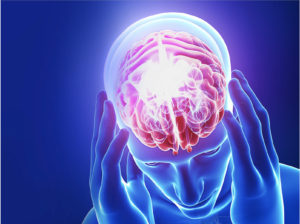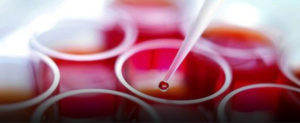Autism Spectrum Disorder (ASD) Samples
Bay Biosciences provides high quality, clinical grade, cryogenically preserved sera (serum), plasma and peripheral blood mononuclear cells (PBMC) biofluid samples from patients diagnosed with Autism Spectrum Disorder (ASD).
The sera (serum), plasma and PBMC biofluid specimens are processed from autism spectrum disorder (ASD) patient’s peripheral whole-blood using customized collection and processing protocols. The autism spectrum disorder (ASD) biofluid samples are collected from unique patients diagnosed with autism spectrum disorder (ASD) and are provided to a valued pharmaceutical customer for research, diagnostics, discovery and drug development.
Detailed clinical data, patients history, symptoms, complete blood count (CBC), serology. MRI, histopathology information, elevated biomarker levels, genetic and metabolic information associated with autism spectrum disorder (ASD) specimens is provided to a valued customer for research, development and drug discovery.
The autism spectrum disorder (ASD) sera (serum), plasma and peripheral blood mononuclear cells (PBMC) biofluid are processed from patients peripheral whole-blood using customized collection and processing protocols.

Autism Spectrum Disorder (ASD) Overview
Autism spectrum disorder (ASD) is a developmental disability that can cause significant social, communication and behavioral challenges. Autism spectrum disorder is a condition related to brain development that impacts how a person perceives and socializes with others, causing problems in social interaction and communication. The disorder also includes limited and repetitive patterns of behavior. The term “spectrum” in autism spectrum disorder refers to the wide range of symptoms and severity.
According to centers for disease control and prevention CDC about 1 in 54 children has been identified with autism spectrum disorder (ASD). ASD is more than 4 times more common among boys than among girls. About 1 in 6 (17%) children aged 3–17 years were diagnosed with a developmental disability. These included autism, attention-deficit/hyperactivity disorder, blindness, and cerebral palsy, among others.
Autism spectrum disorder includes conditions that were previously considered separate autism, Asperger’s syndrome, childhood disintegrative disorder and an unspecified form of pervasive developmental disorder. Some people still use the term “Asperger’s syndrome,” which is generally thought to be at the mild end of autism spectrum disorder.
Autism spectrum disorder begins in early childhood and eventually causes problems functioning in society, for example, socially, in school and at work. Often children show symptoms of autism within the first year. A small number of children appear to develop normally in the first year, and then go through a period of regression between 18 and 24 months of age when they develop autism symptoms. While there is no cure for autism spectrum disorder, intensive, early treatment can make a big difference in the lives of many children.
Signs and Symptoms of Autism Spectrum Disorder (ASD)
Some children show signs of autism spectrum disorder in early infancy, such as reduced eye contact, lack of response to their name or indifference to caregivers. Other children may develop normally for the first few months or years of life, but then suddenly become withdrawn or aggressive or lose language skills they’ve already acquired. Signs usually are seen by age 2 years.
Each child with autism spectrum disorder is likely to have a unique behavioral pattern and level of severity, ranging from low functioning to high functioning. Some children with autism spectrum disorder have difficulty learning, and some have signs of lower than normal intelligence. Other children with the disorder have normal to high intelligence, they learn quickly, yet have trouble communicating and applying what they know in everyday life and adjusting to social situations. Because of the unique mixture of symptoms in each child, severity can sometimes be difficult to determine. It’s generally based on the level of impairments and how they impact the ability to function.
Following are some of the common signs and symptoms shown by autism spectrum disorder patients:
Social Communication and Interaction Problems
A child or adult with autism spectrum disorder may have problems with social interaction and communication skills, including any of the following signs and symptoms:
- Not look at objects when another person points at them
- Not point at objects to show interest (for example, not point at an airplane flying over)
- Fails to respond to his or her name or appears not to hear you at times
- Resists cuddling and holding, and seems to prefer playing alone, retreating into his or her own world
- Has poor eye contact and lacks facial expression
- Doesn’t speak or has delayed speech, or loses previous ability to say words or sentences
- Can’t start a conversation or keep one going, or only starts one to make requests or label items
- Speaks with an abnormal tone or rhythm and may use a singsong voice or robot-like speech
- Repeats words or phrases verbatim, but doesn’t understand how to use them
- Doesn’t appear to understand simple questions or directions
- Doesn’t express emotions or feelings and appears unaware of others’ feelings
- Inappropriately approaches a social interaction by being passive, aggressive or disruptive
- Has difficulty recognizing nonverbal cues, such as interpreting other people’s facial expressions, body postures or tone of voice
Patterns of Behavior
A child or adult with autism spectrum disorder may have limited, repetitive patterns of behavior, interests or activities, including any of these signs:
- Performs repetitive movements, such as rocking, spinning or hand flapping
- Performs activities that could cause self-harm, such as biting or head-banging
- Develops specific routines or rituals and becomes disturbed at the slightest change
- Has problems with coordination or has odd movement patterns, such as clumsiness or walking on toes, and has odd, stiff or exaggerated body language
- Is fascinated by details of an object, such as the spinning wheels of a toy car, but doesn’t understand the overall purpose or function of the object
- Is unusually sensitive to light, sound or touch, yet may be indifferent to pain or temperature
- Doesn’t engage in imitative or make-believe play
- Fixates on an object or activity with abnormal intensity or focus
- Has specific food preferences, such as eating only a few foods, or refusing foods with a certain texture
As they mature, some children with autism spectrum disorder become more engaged with others and show fewer disturbances in behavior. Some, usually those with the least severe problems, eventually may lead normal or near-normal lives. Others, however, continue to have difficulty with language or social skills, and the teen years can bring worse behavioral and emotional problems.
Diagnosis of Autism Spectrum Disorder (ASD)
Diagnosing autism spectrum disorder (ASD) can be difficult since there is no medical test, like a blood test, to diagnose the disorders. Doctors look at the child’s behavior and development to make a diagnosis. Autism spectrum disorder (ASD) can sometimes be detected at 18 months or younger. By age 2, a diagnosis by an experienced professional can be considered very reliable. However, many children do not receive a final diagnosis until much older. This delay means that children with autism spectrum disorder (ASD) might not get the early help they need.

Bay Biosciences is a global leader in providing researchers with high quality, clinical grade, fully characterized human tissue samples, bio-specimens and human bio-fluid collections from cancer (tumor) tissue, cancer serum, cancer plasma cancer PBMC and human tissue samples from most other therapeutic areas and diseases.
Bay Biosciences maintains and manages it’s own bio-repository, human tissue bank (biobank) consisting of thousands of diseased samples (specimens) and from normal healthy donors available in all formats and types. Our biobank procures and stores fully consented, deidentified and institutional review boards (IRB) approved human tissue samples and matched controls.
All our human human tissue collections, human specimens and human bio-fluids are provided with detailed samples associated patient’s clinical data. This critical patient’s clinical data includes information relating to their past and current disease, treatment history, lifestyle choices, biomarkers and genetic information. Patient’s data is extremely valuable for researchers and is used to help identify new effective treatments (drug discovery & development) in oncology, other therapeutic areas and diseases. This clinical information is critical to demonstrate their impact, monitor the safety of medicines, testing & diagnostics, and generate new knowledge about the causes of disease and illness.
Bay Biosciences banks wide variety of human tissue samples and biological samples including cryogenically preserved -80°C, fresh, fresh frozen tissue samples, tumor tissue samples, FFPE’s, tissue slides, with matching human bio-fluids, whole blood and blood derived products such as serum, plasma and PBMC’s.
Bay Biosciences is a global leader in collecting and providing human tissue samples according to the researchers specified requirements and customized, tailor made collection protocols. Please contact us anytime to discuss your special research projects and customized human tissue sample requirements.
Bay Biosciences provides human tissue samples (human specimens) from diseased and normal healthy donors; including peripheral whole-blood, amniotic fluid, bronchoalveolar lavage fluid (BAL), sputum, pleural effusion, cerebrospinal fluid (CSF), serum (sera), plasma, peripheral blood mononuclear cells (PBMC’s), saliva, Buffy coat, urine, stool samples, aqueous humor, vitreous humor, kidney stones, renal calculi, nephrolithiasis, urolithiasis and other bodily fluids from most diseases including cancer. We can also procure most human bio-specimens and can do special collections and requests of human samples that are difficult to find. All our human tissue samples are procured through IRB approved clinical protocols and procedures.
In addition to the standard processing protocols Bay Biosciences can also provide human plasma, serum, PBMC bio-fluid samples using custom processing protocols, you can buy donor specific sample collections in higher volumes and specified sample aliquoting from us. Bay Biosciences also provides human samples from normal healthy donors, volunteers, for controls and clinical research, contact us Now.
日本のお客様は、ベイバイオサイエンスジャパンBay Biosciences Japanまたはhttp://baybiosciences-jp.com/contact/までご連絡ください。


